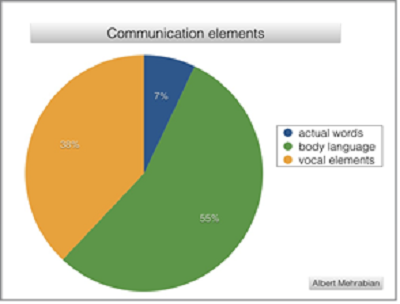6 Steps to Outstanding Questioning & Communication


How many questions do you ask each day? What would happen if these interactions were more productive, better constructed and response driven? The possibilities are endless.
In this article we will examine 6 steps to achieving outstanding communication.
1. Ask yourself – do you always want a truthful answer?
If the answer is ‘no’, this might be because you:
- don’t want to hear what is said
- are looking for agreement
- want your opinions backed up
- don’t actually need an answer (in the case of rhetorical questions)
Therefore, in order to ask the right questions you need to be aware of your true motivations for asking them in the first place.
[bookboon-book id=”91e6aab8-36f3-4788-8698-a445008e2042″ title=”Find more communication tips in this eBook”]
2. Know what questions can do
Most of us are aware that questions give us answers and information, but they can do so much more. Questions can in fact accomplish 7 tasks:
- gain knowledge
- promote and expand thinking
- clarify
- probe
- guide
- intimidate
- attack
3. Understand & appreciate the power of listening
The power of questions comes not just from how we ask them , but crucially how we listen to the answers and the information they provide. The mnemonic often used is LISTEN
L – look interested – gentle eye contact, nodding, head movement
I – involve your self – verbally and non verbally
S – stay focused and limit distractions
T – test your understanding by repeating what is being said
E – evaluate the message – what are they actually saying both verbally & non verbally
N – neutralise your feelings & beware of bias – sometimes called halo or horns. don’t cherry pick the bits you like, or conversely dismiss someones views, comments or concerns
4. Acknowledge why we don’t always listen
Not listening is not due to a lack of care or commitment, but rather due to it being a skill that requires practice and commitment. We may not listen and hear because we are:
- thinking of the next question
- waiting to speak and not actually hearing what’s said
- biased or have preconceived ideas about what is going to be said
- trying to finish someones answers and rush the interaction
- wanting to selectively listen and pick out the bits we like or agree with
- unable to pick up on speech qualities or body language
5. Recognise the power of body language
“the conscious and unconscious movements and postures by which attitudes and feelings are communicated”
If we look at how we communicate, body language forms 55% of our understanding and is therefore a crucial element in asking questions. Much of this information has come from the work of Albert Mehrabian

So, what do we mean when we say 55% of communication is gleaned through body language? Well, some of the common body language markers seen when asking or answering questions involve the:
- head
- face
- hands
- eyes
- mouth
- arms
- general posture
6. Know what you should ask ourselves before asking a question?
There are clearly a huge variety of questions you can ask, but the key is to match the question and its type to the context and audience. The very least you should ask yourself is:
- who is my audience?
- what is their frame of mind?
- what is my relationship with them?
- where do I think I sit on a credibility / knowledge scale with them?
- is this the right time to ask?
- is this the right environment to ask in?
- do I have a pre-conceived idea about how they will respond?
- what are my intensions?
Due to their power, questions are often referred to as ‘the Swiss army knife of language’. Where do you think their power lies? What is their role in our wider communication?
If you would like to improve your communication skills, download Sarah Simpson’s eBook “Your ultimate guide to questioning & Listening” and take a look at her training courses at www.dragontoothtraining.org.uk.
[bookboon-recommendations author=”Sarah Simpson” title=”Other eBooks by Sarah Simpson”]



